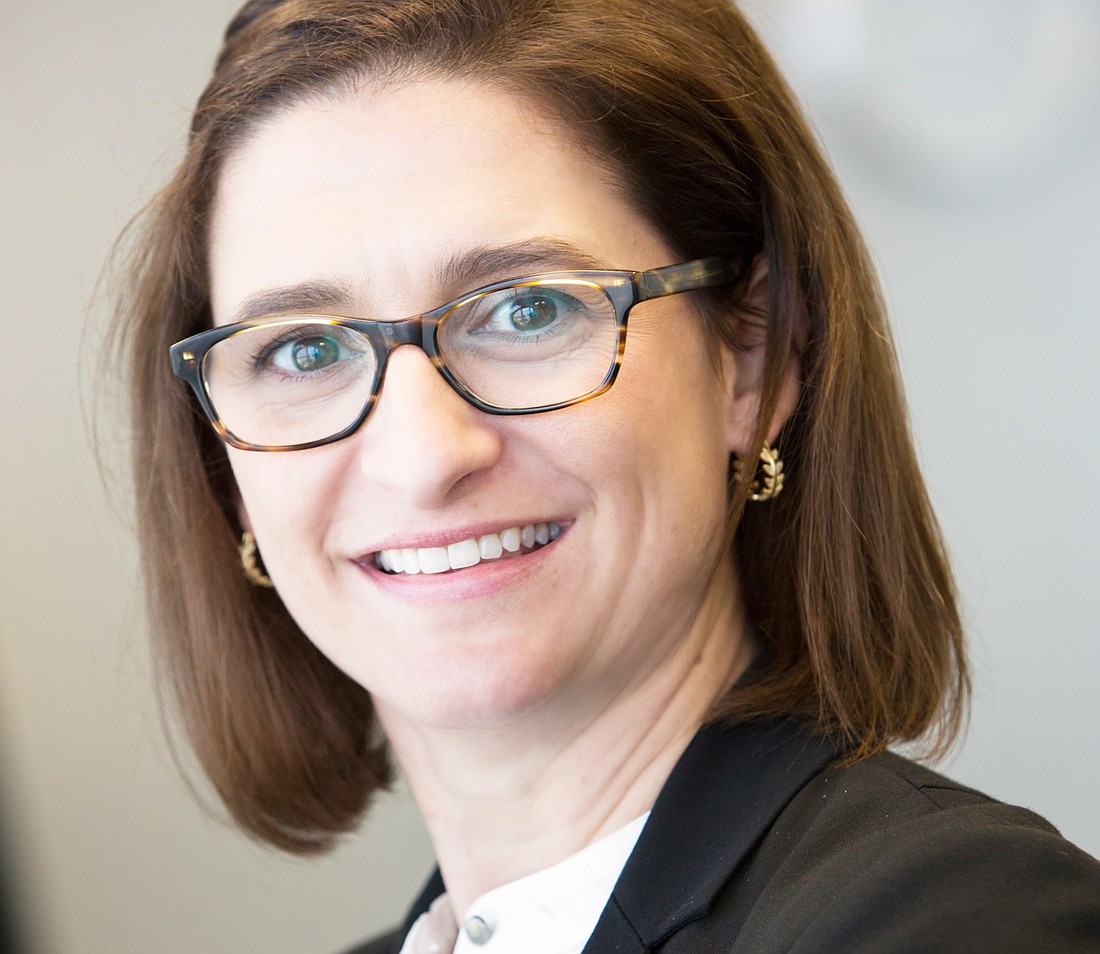
Darcy Galnor is a former assistant state attorney and assistant public defender who has been in private practice for more than three years. On Aug. 1, she and her law partner, Gary Shumard, are moving Galnor Shumard into new offices at 121 W. Forsyth St.
Who or what inspired you to become a lawyer?
It was my dad who pushed me, and I’m grateful he did. At the time, I was working as a newspaper reporter and, unbeknownst to me, journalism was already preparing me for the practice of law. Turns out, sometimes your parents really do know best.
One person (other than my spouse) who inspires me:
Dr. David L. Suskind, a pediatric gastroenterologist at Seattle Children’s Hospital. He has single-handedly changed the paradigm for how to treat children with inflammatory bowel disease.
How do you relate your undergraduate degree to your practice of law?
Knowing how to ask the right questions is something that’s important in both journalism and law, particularly criminal defense work. Being a reporter taught me to search for the truth – and the value of public records.
How did you decide your practice area? And why have you chosen that?
I interned for the State Attorney’s Office and U.S. Attorney’s Office during law school and my first job was as a state prosecutor. I wanted to start there and get experience in the courtroom before figuring out the next step. I left the State Attorney’s Office to try civil defense but didn’t last more than a few months. For me, it took trying something else to realize my passion was in criminal law. I love being in the courtroom. I also strongly believe that everyone deserves a competent and zealous advocate.
What do you think will be the next biggest change in your area of law?
I’ll be curious to see if the courts and prosecutors are still handling drug possession cases the same way five years from now. As a nation, we incarcerate so many people for drug crimes and I’m hopeful we will see more of an emphasis on diversion and rehabilitation instead of locking people up.
If I could change anything in the legal system, I would:
Eliminate mandatory minimum sentences. We’ve legislated sentencings to the point we’ve taken the discretion out of the hands of those who are entrusted to make such decisions. Mandatory sentences undermine the constitutional structure of our country by giving the executive branch control over sentencing, therefore usurping the judicial branch.
What community service have you pursued and why?
I volunteer with Jacksonville Area Sexual Minority Youth Network by providing pro bono representation to youth who receive services. I also help educate JASMYN’s young people on their legal rights and how to properly deal with police encounters. LGBTQ youth at JASMYN don’t have the resources to navigate the legal system. I work with the staff and youth to solve legal matters that often prohibit them from becoming employed or finding housing. I also am a member of a parent group at Nemours Children’s Health System whose focus is families with children that suffer from inflammatory bowel disease. Our 11-year-old daughter has Crohn’s disease. The group, which includes parents and professionals in the field, works with doctors and nurses to help tailor care from both the parents’ and patients’ perspective regarding different treatment and dietary options. As part of the effort, another mother and I are working to start a support group for families of children with IBD.
What’s your advice for new lawyers?
This isn’t specific to lawyers, but it’s something I try to live by personally and professionally: Character is how you treat those who can do nothing for you.